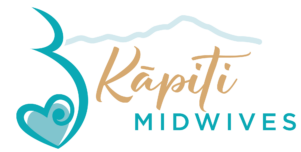Frequently Asked Questions
We’ve answered the most commonly asked questions about antenatal and postnatal care here.
If you have a question that isn’t answered below, please don’t hesitate to get in touch with us.
About Our Services
Pregnancy Questions
- Nappies/wet wipes
- Cotton Singlet or bodysuit
- Stretch n grow or nightie
- Woollen cardigan
- Woollen hat
- Woollen singlet or bodysuit
- Woollen/cotton blanket
For you:
- Pj’s & dressing gown
- Clean clothes for the next few days (if in hospital)
- Plenty of underwear
- Toiletries, including sanitary pads
- Energy drink (diluted)
- Food snacks
- Camera
For your partner:
- Cool clothes – it’s warm in the birth room
- Drinks, food, camera, phone and charger
- Don’t skip breakfast; make sure you eat regular small meals throughout the day
- Incorporate more leafy and crunchy vegetables into your diet – these help to improve the health of your gut, increases folate and iron intake, relieves constipation and reduces your chance of developing diabetes
- Increase foods/kai with good quality protein, such as nuts, beans, eggs, meat and kaimoana – protein is essential to support pēpi/baby’s growth
- Increase the amount of iron-rich foods in your diet – these include red meat, dark greens, tofu, well cooked fish, and fresh mussels (served piping hot)
- Have Vitamin C with your meal to help absorb iron (e.g. add a squeeze of fresh lemon juice in your water) – iron carries oxygen in your blood to both you and your pēpi/baby, so you’ll need a lot more of it during your pregnancy
- Avoid foods that can reduce your iron absorption, such as caffeine, milk, cheese and fizzy drinks
- Avoid other zero-nutrient foods such as lollies and other high sugar foods and beverages – they can increase your chances of diabetes and tooth decay
- Focus on good quality protein to support pēpi/baby’s growth. Eggs, kaimoana, nuts, beans, tofu and meat
- If you smoke/vape then pēpi/baby’s growth and development. Talk to your midwife about she can support you and your whānau/family to stop smoking.
Morning sickness affects up to 80% of pregnant women/wāhine, with 2% suffering from severe and ongoing symptoms. This usually begins 4 to 6 weeks after your last menstrual cycle, and peak anywhere between 9 to 16 weeks. Normal pregnancy sickness will not threaten the health of your baby/pēpi, as long as you’re able to keep fluids and kai/foods down. If you are unable to keep fluids or food/kai down for longer than a day, please call your midwife.
Postnatal Questions
- Postnatal Distress Support Group
- Bonding with your newborn
- Mothers Matter
- Pelvic floor exercises
- Child development
- The Real Motherhood
- Playcentre who offer group SPACE programmes for Mums and Bubs
Topics covered include:- Sleeping and crying
- Establishing attachment
- Expressing myself (communication and language development)
- Physical development (fine and big muscle co-ordination)
- Becoming a parent
- The beauty of the brain (brain development and early experiences)
- Treasure baskets, heuristic play and exploration of play
- A sense of me and others (socialisation)
- Talk to your midwife first who is trained to support you in breastfeeding
- Mama Aroha and Breastfed NZ Apps, free to download
- ‘Breastfeeding Naturally’ YouTube clips by the Ministry of Health
We have a lactation consultancy service available for those needing support; please note this will incur a charge.
You’ll need to ensure the car seat is a NZ approved infant car seat and in good condition. Newborn car seats must be rear facing. When you choose your car seat, make sure you understand how to properly fit it in your car, adjust the straps, sit your pēpi/baby comfortably, and close the buckle.
